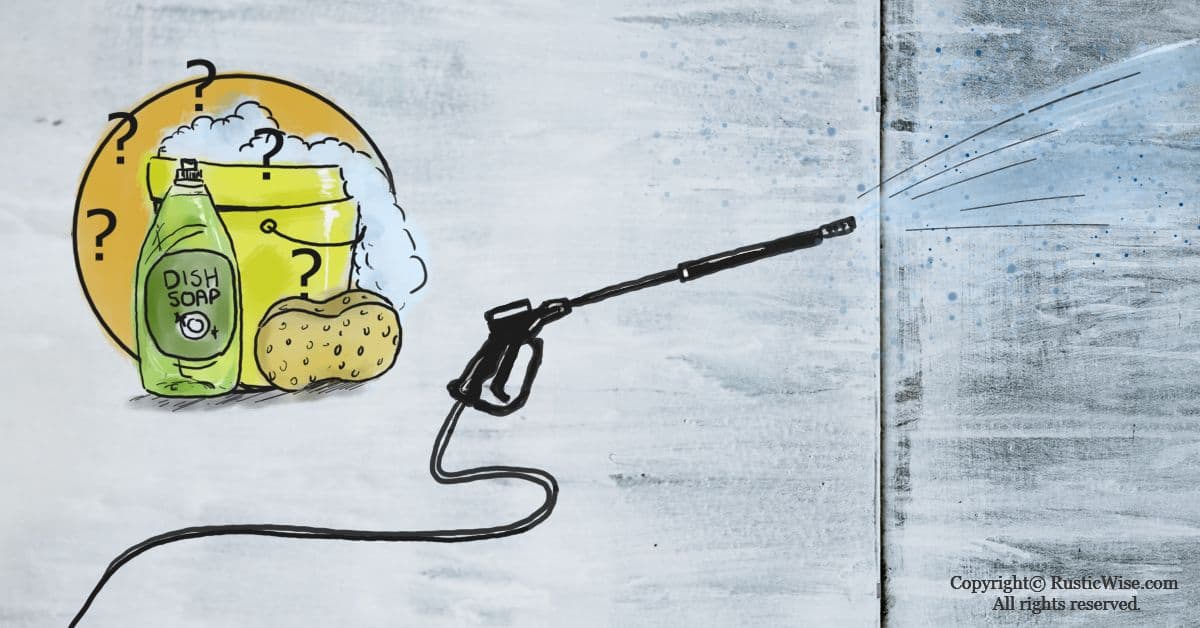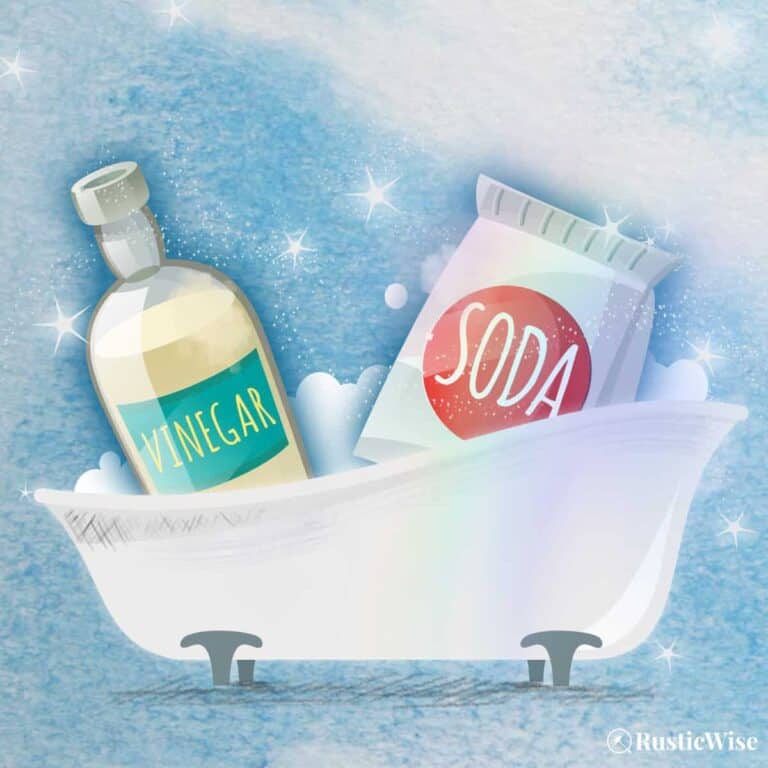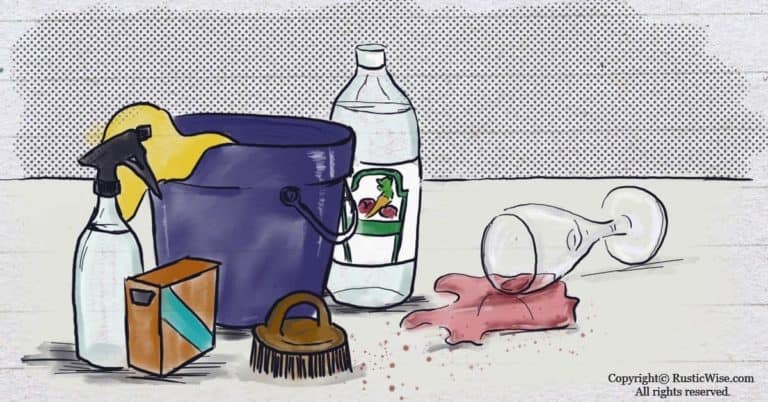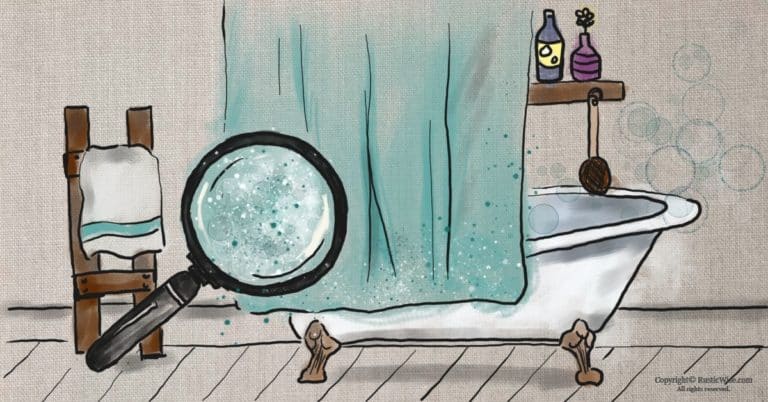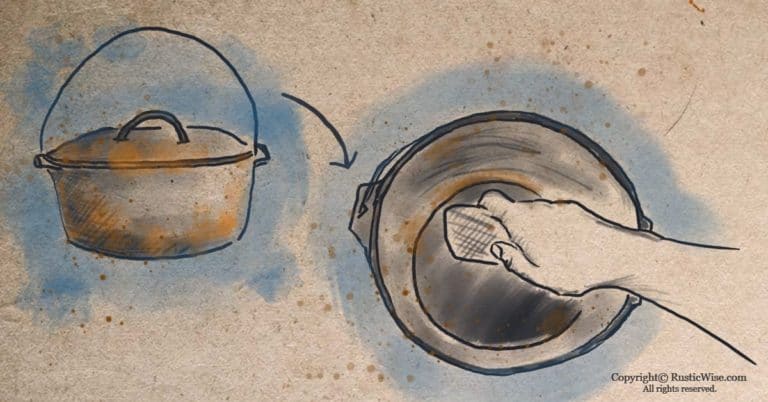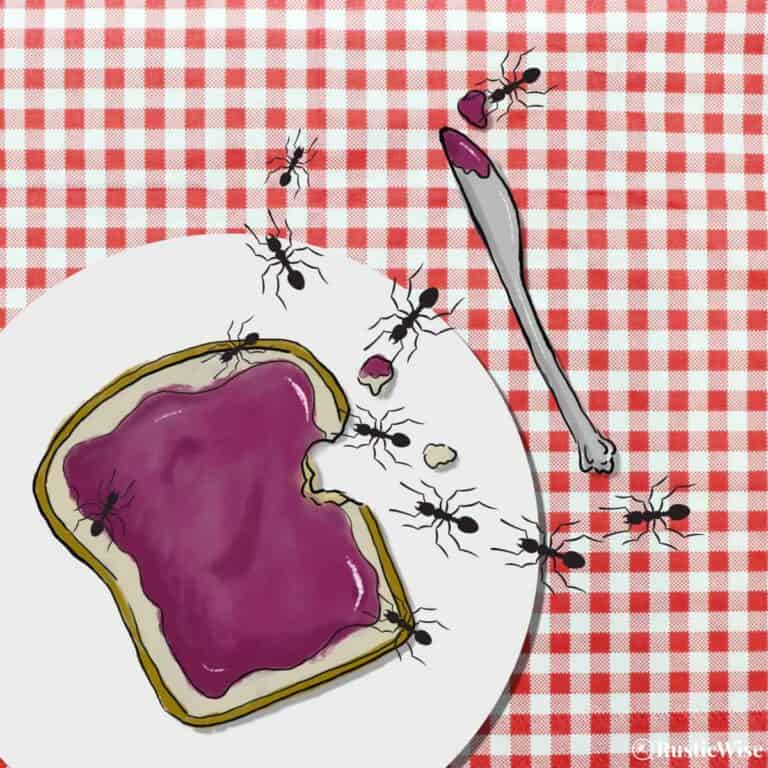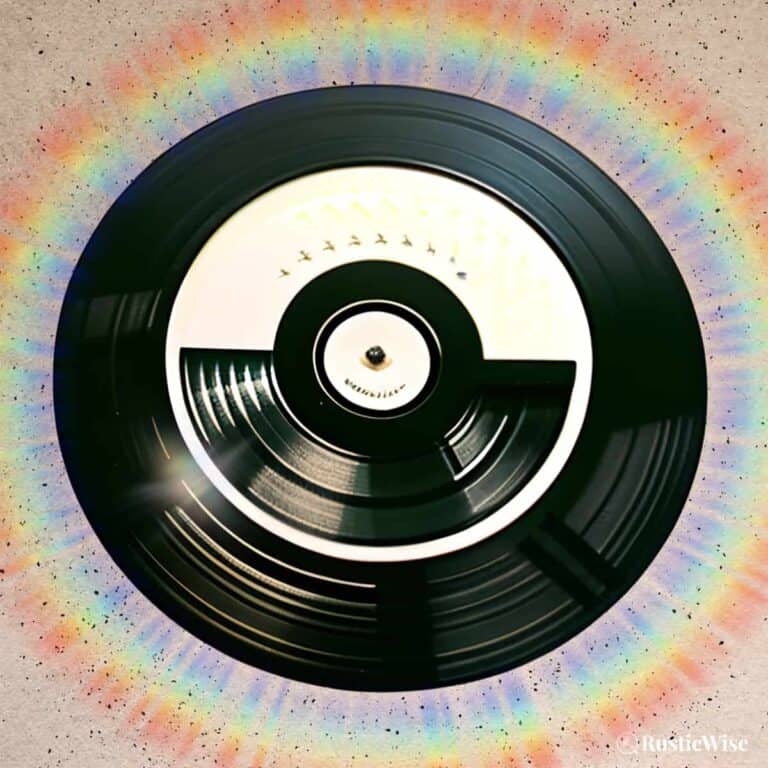Can You Use Dish Soap In A Pressure Washer?
If you have a pressure washer and are looking to save money and are concerned about being eco-friendly, you’re probably wondering, “Can you use dish soap in a pressure washer?” The short answer is, you can use dish soap if you like. But the better question is, “Should you use dish soap in a pressure washer?” And the answer is, no, you should stick with specially-formulated pressure washer soaps.
There’s an ongoing debate on the interwebs about whether it’s safe to use dish soap like Dawn, or whether you really need to buy a special pressure washer soap.
When a user posed the question on a forum about whether you can safely use Dawn dish soap, another forum user retorted, “Would you wash your dishes with concrete cleaner?” Touché.
Let’s take a closer look at what happens when you use dish soap in a pressure washer.
Why dish soap isn’t good for pressure washers
If you look around your home, you’ll see that you have different soaps and detergents for different purposes: hand soap, dish soap, laundry detergent, and hair shampoo to name just a few. You probably wouldn’t ever think about doing a load of laundry with the same stuff you use to wash your hair, would you? Same concept applies to your pressure washer.
While using dish soap in your pressure washer won’t instantly damage it, it’s not great for long-term use.
Here’s a few reasons why dish soap isn’t great for pressure washers:¹
- May clog your machine: Any soap, cleaner, or detergent that’s not made for pressure washers may clog, or gum up the components of your machine. Pressure washer safe soaps are specifically designed to pass cleanly through components of the machine.
- Not as effective: Sure the power of dish soap does wonders on a greasy casserole dish, but it doesn’t have the same cleaning power on a concrete or wood surface as a pressure washer formula. Could you get the job done with dish soap? Maybe, but it takes more time, effort, and water usage.
- May leave residue: Plain dish soap tends to leave a cloudy appearance on certain surfaces leaving a less-than-stellar finish.
- Not as cost-effective over the long-run: While it may seem like you’re saving money by grabbing the nearest bottle of dish soap rather than buying a pressure washer detergent, you may be surprised by the amount of dish soap you end up using which quickly adds up. A store-bought concentrate pressure washer solution can make gallons of detergent. A gallon of pressure washer detergent costs less than a gallon of Dawn dish soap.
Tip: If you’ll be doing a lot of pressure washing around your home, the best bang-for-your-buck is a jug of concentrate pressure washer soap, not the premixed solution. Sure, you need to carefully mix it beforehand, but it’ll last much longer.
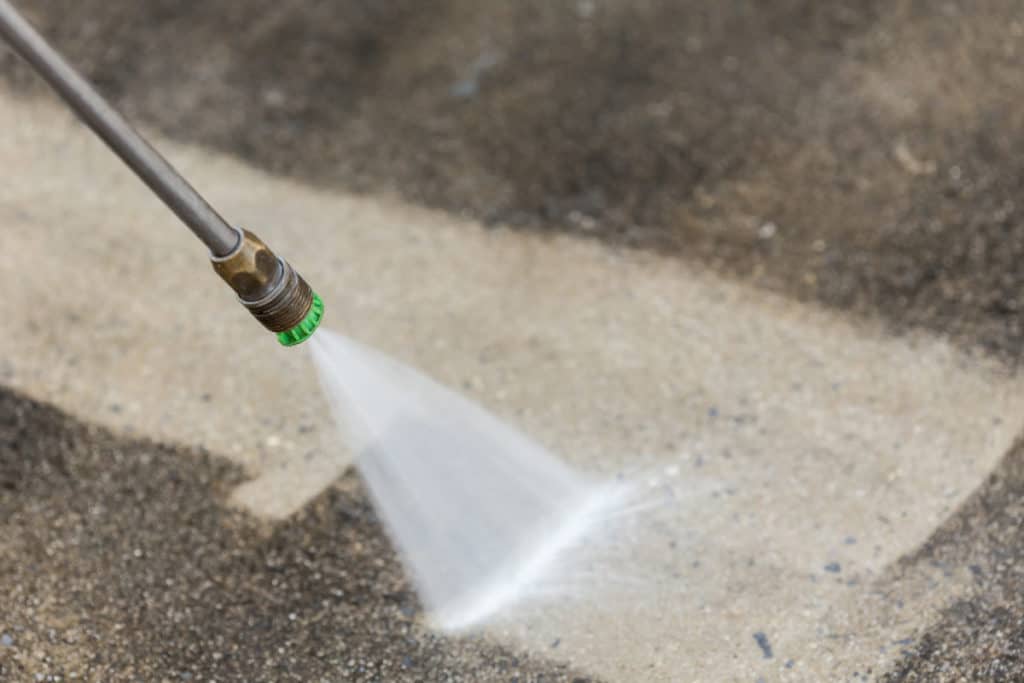
If you decide to use dish soap in a pressure washer, know these things first
Ideally, you would use a pressure washer safe soap for your pressure washer, but there are some people who like to bend the rules (there’s a rebel in every crowd) and use dish soap instead. If this is you, read these guidelines before you proceed:²
- Your manufacturer’s warranty may be void if you use improper detergent: You probably already know this and don’t care, but it’s good to point out anyway.
- Avoid using on cars: It’s important to consider the surface that you’ll be cleaning. While dish soap may be harmless on concrete, it can do a number on your car’s surface. Dish soap when used for washing cars can remove wax and other protective coatings.
- Be extra careful if you have an upstream pressure washer: If you have an upstream pressure washer, your machine intakes detergent before the pump (a downstream machine introduces detergent after the pump). Using dish soaps or other types of detergents that aren’t specifically designed to pass through the system in an upstream pressure washer causes damage over time.
- Dilute well: Always dilute dish soap with water before using in your pressure washer.
- Rinse well after use: Dish soap can leave a cloudy or filmy residue on surfaces if left for too long. Ensure you avoid this by rinsing surfaces immediately after soaping up.
- Thoroughly clean pressure washer after each use: To prevent clogging or gumming up of your pressure cleaner, rinse any soap or detergent from the pressure washer after each use. Remove the siphoning tube from the detergent reservoir and let water run through it on low pressure for several minutes.
Tip: There are a number of DIY pressure washer solutions you can find online—use at your own risk. Many DIY solutions go beyond dish soap and use vinegar, laundry detergent, and other household multi-purpose cleaners. Just be sure to use caution and always dilute the soap or other cleaning agents before using with your pressure washer.
What makes pressure washer solutions different from dish soap?
Unlike pressure washer solutions, dish soap isn’t designed to withstand extreme water pressure.
Dish soap also doesn’t have the components necessary to remove stubborn stains on wood or concrete, or disinfect surfaces. The ingredients that dish soap and pressure washer concentrate have in common are water and surfactants—these two ingredients aren’t enough to effectively clean a variety of surfaces.
While different pressure washer safe soaps have different ingredients, here’s a list of ingredients found in a bottle of Simple Green Pressure Washer Concentrate:³
- Water
- Direct-release surfactant: Surfactants break down the barrier between water and any oil or dirt.
- Hydrogen peroxide: A powerful disinfectant commonly used in cleaning.
- Tetrasodium: Neutralizes metal ions found in hard water to help surfactants better do their job.
- Citric acid: Effective at removing stains, especially on wood and concrete.
- Etidronic acid: A chelating agent used to neutralize metal ions in hard water.
When do you actually need to use soap for pressure washing?
Sometimes plain, old water does the trick. If you just have loose debris, or dirt to clean off, using a pressure washer without soap is quite effective. Using your pressure washer without soap saves your cleaning solution for those times when you really need it. It’s time to break out the pressure washing soap if you have:
- Grease and grime
- Stubborn stains
- Or, if you want to get a deep clean
How to find eco-friendly pressure washer soaps and detergents
It’s great if you’re concerned about avoiding the use of harsh chemicals (we are too!). Luckily, there are a number of eco-friendly pressure washer soaps and detergents available.
Look for the EPA Safer Choice label. Products that are certified with this label are safer for the environment and the people that use them. All ingredients are scientifically reviewed for safety.⁴
The takeaway
Can you use dish soap in a pressure washer? Yes. Should you use dish soap in a pressure washer? Not really. While using dish soap once or twice shouldn’t permanently damage your machine, it may eventually clog up your machine if used improperly. Dish soap shouldn’t be used on vehicles. Pressure washer soap is more effective in cost and cleaning power. There are also a number of eco-friendly options on the market.
👉 If you like this post, see other Timeless Cleaning Tips You Need To Know. 🌟
Would you like more timeless tips via email?
Fun tips to help you live an independent, self-sustaining lifestyle. Opt-out at any time.


References
- Woodward, Alex (15 October 2020). “Find the best pressure washer soaps, detergents, and chemicals with our detailed reviews and buying guide,” Cleanup Expert. Accessed November 2020.
- ReadyToDIY.com, Can You Use Dish Soap in a Pressure Washer?, https://readytodiy.com/can-you-use-dish-soap-in-a-pressure-washer-0051. Accessed November 2020.
- Simple Green, About The Safer Choice Program, https://simplegreen.com/safer-choice.php. Accessed November 2023.
- United States Environmental Protection Agency (EPA), Safer Choice, https://www.epa.gov/saferchoice. Accessed November 2020.

Author: Josh Tesolin
Josh is co-founder of RusticWise. When he’s not tinkering in the garden, or fixing something around the house, you can find him working on a vast array of random side projects.

